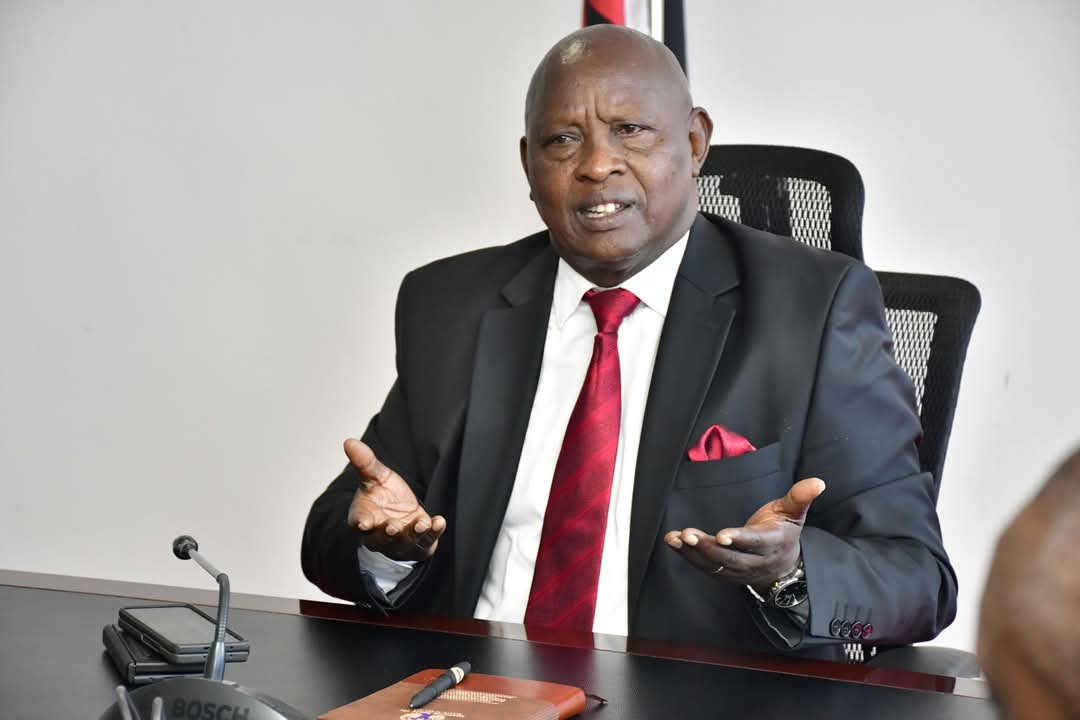
 Nyeri Governor Mutahi Kahiga during a consultative meeting with a team from Water Services Regulatory Board (WASREB), February 11, 2025. /MUTAHI KAHIGA/X
Nyeri Governor Mutahi Kahiga during a consultative meeting with a team from Water Services Regulatory Board (WASREB), February 11, 2025. /MUTAHI KAHIGA/XNyeri Governor Kahiga Mutahi has apologised to members of the Maa community over remarks he made on Monday during a funeral in Laikipia.
Mutahi was among the leaders who spoke during the funeral service of Mzee William Nderitu, father of Senator John Kinyua, at Kiamariga, Salama ward in Laikipia county.
The governor and several other leaders made their remarks in the Kikuyu language, comments Mutahi says he has been informed sounded offensive to members of the Maa community.
“I would like to start by saying sorry to anybody who may have been offended by my remarks,” he said in a video message.
Mutahi said it wasn’t his intention to offend anyone, particularly members of the Maa community whom he claimed have close ties with the Kikuyu community with whom they share cultural practices such as naming of children.
“From time immemorial, when you look at many names, such as Wamaitha, you trace their origin from the Maa community, so I would like to say I’m sorry if anyone was offended by what we said yesterday. We did not intend to offend, condemn, or ridicule anyone.”
Leaders who spoke in Kikuyu at the funeral service attracted the ire of Laikipia North MP Sarah Korere, who told them to their faces to style up and stop addressing a national event like a local rally in their backyard.
“I want to plead with leaders: when we come to a national podium like this where all Kenyans are here, let us speak the national language. This is not Nyeri; we all don’t speak Kikuyu. Get lost,” MP Korere said.
Kenyan politicians often speak in their mother tongues, particularly during campaigns, church events, or funerals in rural areas, to connect more deeply with local voters, appear relatable, and gain their trust by demonstrating an understanding of their concerns.
Speaking in vernacular signifies a closer connection to the community than using English or even Kiswahili, which are considered more formal languages.
The strategy is especially effective where many people may not be fluent in English or Kiswahili, an argument former Deputy President Rigathi Gachagua fronted when he stood to defend himself before senators on October 17 when the Senate upheld the National Assembly’s decision to impeach him.
Drafter of the impeachment motion, Kibwezi West MP Mwengi Mutuse, listed among the grounds for impeachment Gachagua’s penchant for speaking in his Kikuyu dialect when addressing rallies, something he said depicted the ex-DP as being tribalist.







